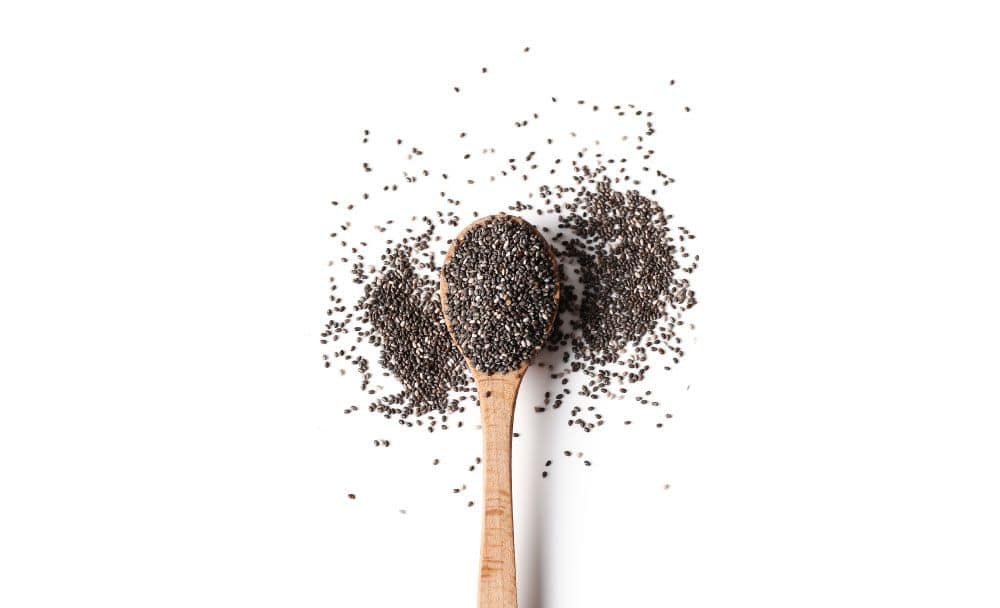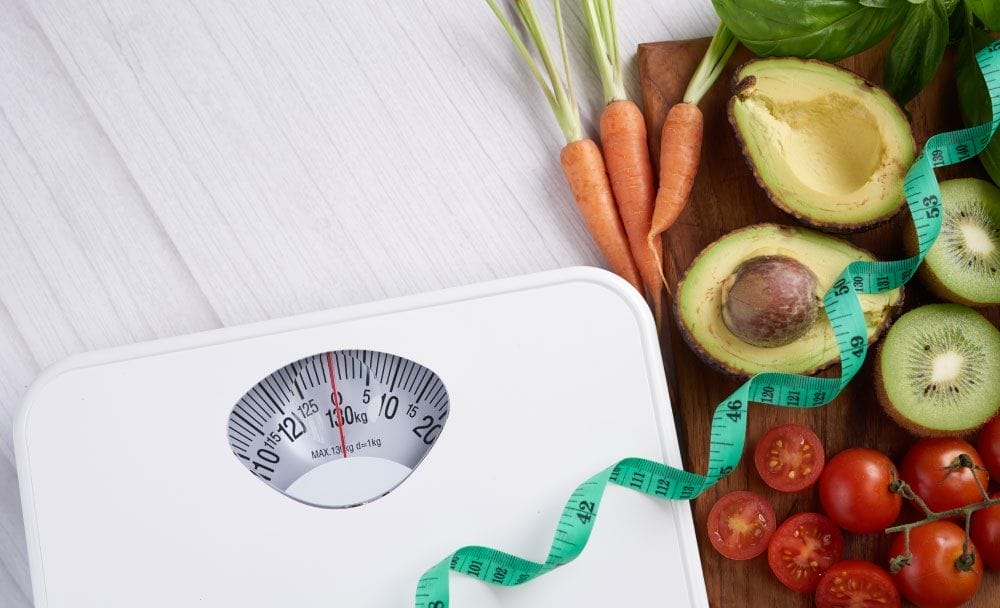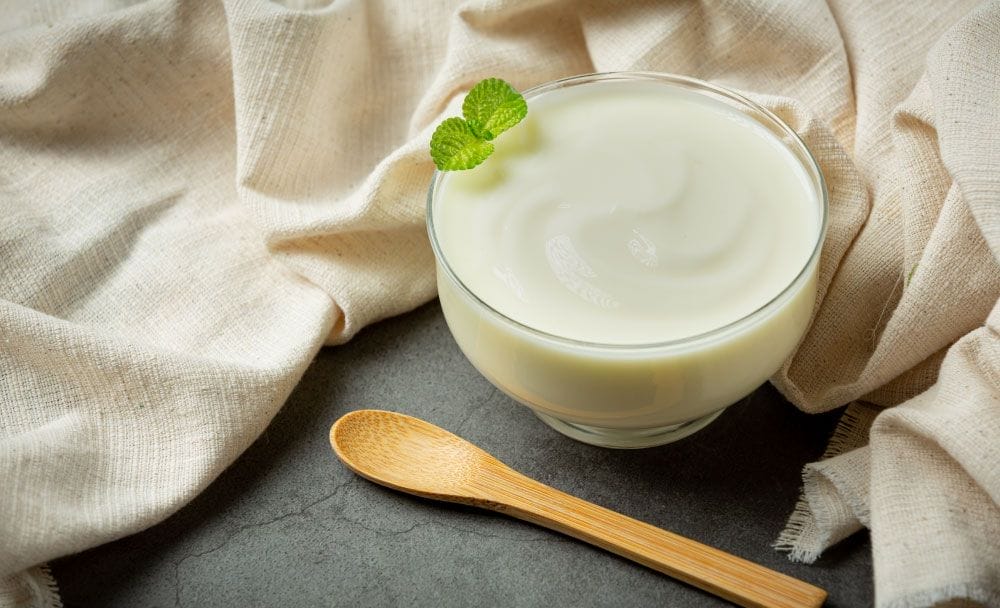
Sabja seeds, also known as basil seeds or tukmaria, have been used for centuries in traditional Ayurvedic and Chinese medicine for their medicinal properties. These small, black seeds appear similar to chia seeds but have a milder flavor and a crunchy texture.
This article examines the nutrition facts, benefits, and uses of sabja seeds. We also help you understand the potential side effects you should be aware of. So, let’s take a closer look at these tiny powerhouses and what they offer.
What are sabja seeds?
Sabja seeds are the small seeds of the sweet basil plant (Ocimum basilicum). They are native to India and other Southern Asian countries and have been used in traditional medicine for centuries. It is common for people to confuse sabja seeds with chia seeds due to their similar appearance and nutritional profile, but they come from different plants.
While chia seeds come from the Salvia hispanica plant, sabja seeds come from the sweet basil plant. Sabja seeds are tiny, oval-shaped, with a hard outer coat and a soft, gelatinous center when soaked in water.
Nutritional composition of sabja seeds
Here’s the nutritional composition of Indian-origin sabja seeds (g/100 g dry weight basis). [1]
| Name | Amount |
|---|---|
| Moisture | 9.6 |
| Protein | 14.8 |
| Lipid | 13.8 |
| Ash | 7.7 |
| Carbohydrate | 63.8 |
| Fiber | 22.6 |
What are the health benefits of sabja seeds?
Sabja seeds are a rich source of nutrients and antioxidants. These aspects make them a great addition to a healthy diet. [1] Here are some potential benefits of consuming sabja seeds:
1. Digestion
Sabja seeds are believed to have a soothing effect on the digestive system, helping alleviate constipation, bloating, and flatulence. The high fiber content of these seeds can also help promote regular bowel movements. [1]
2. Weight loss
Sabja seeds are high in fiber. It will help your stomach feel full and reduce your overall calorie intake. This may help support weight loss efforts. [2]

3. Regulate blood sugar levels
Sabja seeds have been shown to have a hypoglycemic effect, meaning they may help regulate blood sugar levels. This makes them a potentially beneficial addition to the diets of people with diabetes. [2]
4. Immunity
Sabja seeds are a rich source of antioxidants. It will help your body protect itself against oxidative stress and boost immune function. [2]
5. Heart health
Sabja seeds help reduce bad cholesterol levels that reduce the strain on the heart. [2]
What are the uses of sabja seeds?
Sabja seeds are a versatile ingredient used in various dishes to enhance their nutritional value and texture. Here are some common uses of sabja seeds:
1. Beverages
Sabja seeds are often used in beverages such as lemonade, iced tea, and smoothies to add a refreshing crunch and boost their nutritional value.
2. Desserts
Sabja seeds are commonly used in Indian desserts such as falooda and kulfi to add a chewy texture and nutty flavor.
3. Yogurt
Sabja seeds can be added to yogurt to create a nutritious and filling snack. They are also ideal to be used as a topping for yogurt bowls.

5. Salads
Sabja seeds can be sprinkled on salads to add a crunchy texture and boost their nutritional value.
What are the side effects of sabja seeds?
While they are generally safe for consumption, here are some potential side effects of sabja seeds to be aware of:
1. Bleeding
Sabja seeds may increase the risk of bleeding, especially in people taking blood-thinning medications. [2]
2. Pregnancy complications
Pregnant women should avoid consuming sabja seeds as they may cause complications during pregnancy. [2]
3. Impact fertility
Sabja seeds may impact fertility in some people, especially men. [2]
4. Hypoglycemia
Sabja seeds may lower blood sugar levels. It can be problematic for people with diabetes or those on medication for controlling blood sugar levels. [2]
FAQs on Sabja Seeds
1. What are the side effects of sabja seeds for females?
Sabja seeds may cause complications during pregnancy, and pregnant women should avoid consuming them.
2. What are the benefits of sabja seeds for the skin?
Sabja seeds are rich in antioxidants, which help prevent damage from free radicals and promote healthy skin.
3. How to use sabja seeds?
Sabja seeds can be used in a variety of ways. They can be soaked in water and added to lemonade or iced tea or sprinkled over yogurt or oatmeal. It’s important to soak sabja seeds in water before consuming them to prevent the risk of choking.
Conclusion
Sabja seeds are a nutritious and versatile ingredient that offer many potential health benefits, including improved digestion, weight loss, and heart health. They can be used in various dishes, from beverages to desserts, to add nutritional value and texture.
However, as with any food or supplement, it’s important to consume sabja seeds in moderation and be aware of potential side effects. Adding sabja seeds to your diet may boost your nutrition and support your overall health.
Disclaimer:
The information provided here is not intended to replace professional advice or treatment.
References:
- Basil Seeds as a Novel Food, Source of Nutrients and Functional Ingredients with Beneficial Properties: A Review. 24 June 2021
- Health Benefits of Basil Seeds.


















